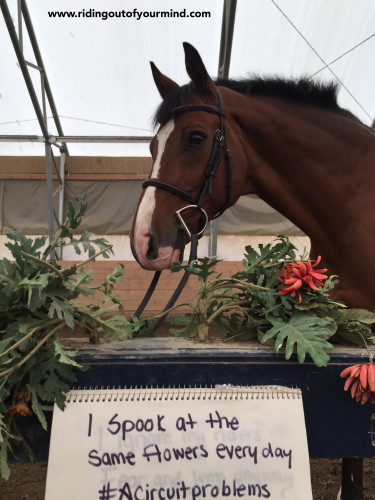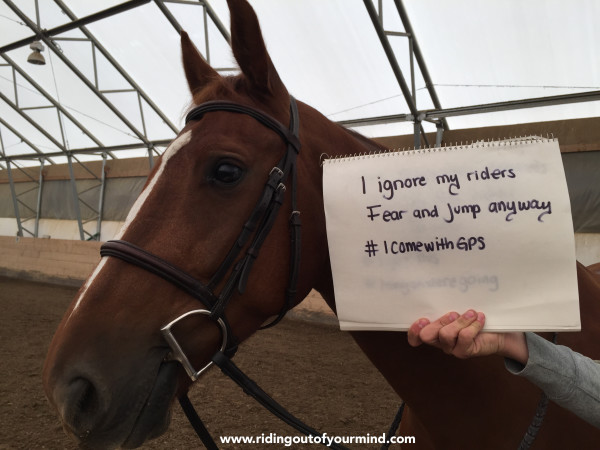We are inundated with images and stories of shaming these days. Some are humorous, some very hurtful.
By definition, shaming is attempting to make someone feel pain and remorse for something they have done or worse yet, some way they just are. Shaming and blaming are close cousins. When you shame you also say: you are the responsible one in the wrongdoing.
Sure, there is some humorous harmless horse shaming going on: “I poop in my water bucket, every day”, or “I don’t play well with others.”

But then there is the other kind, where riders speak openly about the shortcomings of their horse. Or, using their inside voice do just the same—shame, blame and complain about their mounts.
There is, of course, very little evidence that animals feel shame for their actions. So you are not likely to see any change as a result of horse shaming if you choose to engage in it. But that doesn’t mean there aren’t any consequences. Unfortunately, there could be a very real one for you.
Whenever I hear a rider describe their horse in negative terms, or outright shame and name call them, my ears perk up (sorry, pun intended).
It signals trouble in the partnership. This, of course, could be for a whole variety of reasons: fear being redirected as anger, perfectionistic expectations, or a general sense of helplessness that culminates in blaming.
Playing the blame game with your horse produces the same result it does in our human relationships: it’s destructive and unproductive. It creates a negative pattern of thought within you with regard to your partner. Your expectation can become tainted and ironically you bring out the worst instead of the best. You also end up putting yourself in a corner, a place in which you limit your control. Your chance of having a successful outcome is significantly reduced if you believe you are not really responsible.
So what is the antidote to shaming? Consider honoring your teammate. By respecting their differences, working with their weaknesses and capitalizing on their strengths.

Horse honoring 101:
- Take responsibility for your communication. Check your messages. Are you operating out of “you disappoint me” or “I have confidence in you”?
- Maintain a problem solving approach by isolating the behaviour and insuring you have a plan for change.
- Remove any negative references and labels when it comes to your teammate. Replace them with an acknowledgement of assets and special or unique abilities.
- What are your horse’s strengths? What matches the best with your own that you can truly celebrate—and maximize by making them part of your “team” goals?



 January 11, 2016
January 11, 2016 






















